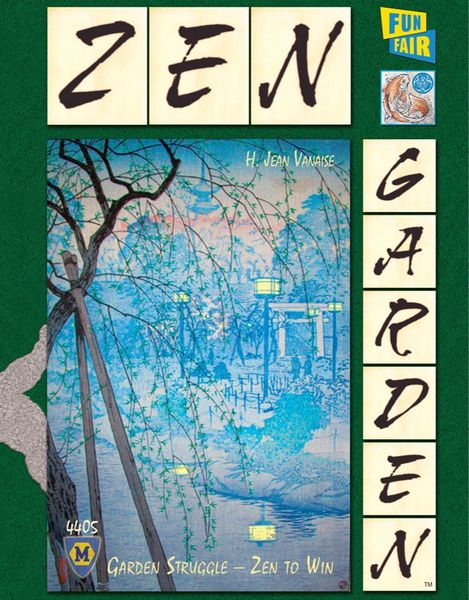Zen Garden (2013) Board Game
Zen Garden is a tile placement puzzle game released in 2013 by designers Jared Blando, Richard Blando, and Jared Sisson. The game is set in a serene Japanese garden, where players compete to create the most harmonious and beautiful garden using different landscape tiles.
Game Components of Zen Garden
How To Setup Zen Garden
To set up the game, each player receives a 16-space Garden Board and markers for coins and scores. The selection board is placed in the center, filled with randomly drawn garden tiles. The Preference Boards, which determine the game’s complexity and scoring criteria, are chosen by the players before the game begins. Each game starts with Board #1 and additional boards can be added for more complexity.
Gameplay Mechanics and Game Objective
Mechanics
Game Objective
Player Experience
Playing **Zen Garden** involves a strategic and intricate process of building a garden that meets the Emperor’s preferences. Each turn is simple yet requires careful planning to outmaneuver competitors. The game’s complexity can be adjusted by adding more Preference Boards, making it appealing to a wide range of players. The tile placement mechanism and the need to manage coins add a layer of depth to the game, making it both challenging and engaging[3/.
Pros
Cons
Personal Thoughts on Zen Garden
**Zen Garden** is perfect for those who enjoy strategic puzzle games with a touch of aesthetics. It appeals to families and casual gamers looking for a game that requires thought and planning. However, it may not be ideal for those seeking a fast-paced, action-packed experience. The game’s ability to adjust complexity makes it versatile, suitable for both newcomers to board games and seasoned players looking for a challenge.
We are supported by our audience. When you purchase through links on our site, we may earn an affiliate commission, at no extra cost for you. Learn more.

